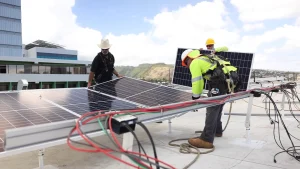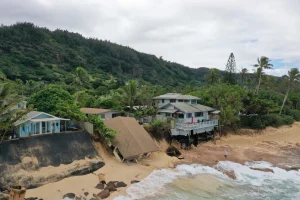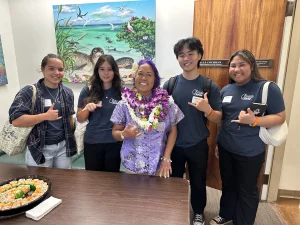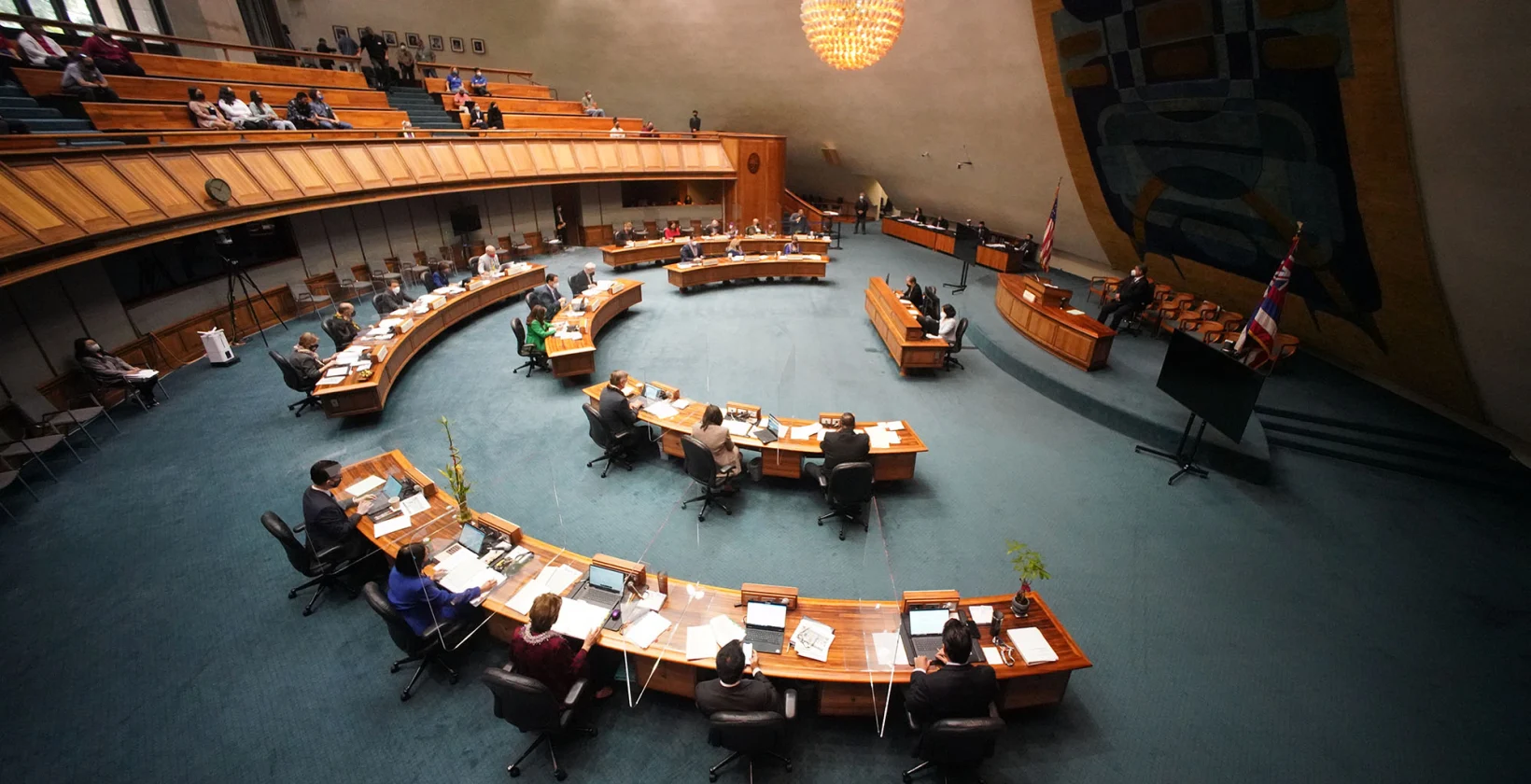After four months of action, the 2024 legislative session came to a close. We want to send a warm mahalo to all who supported Blue Planet’s policy priorities and engaged in the legislative process. We also want to share the outcomes of the session, which saw few energy wins, but was pivotal in advancing recovery and resilience efforts in Hawai‘i, particularly in response to the August 2023 wildfires on Maui.
The major focus of lawmakers was on providing relief from the devastating wildfires in Lahaina. This session, the legislature allocated $1 billion in funding to support families affected. This funding will be crucial to address immediate needs including food, housing, and other assistance to impacted families, as well as rebuild infrastructure that will help to restore the West Maui community.

In addition to wildfire recovery, there were a couple of clean energy bills that passed. The budget bill included a $6 million investment in geothermal research for the Hawai‘i Technology Development Corporation to work with the University of Hawai‘i in exploring the availability of geothermal resources throughout the state. Another important bill established a Solar Hui Program under Hawai‘i’s Green Bank to help increase access to solar for households who live in multifamily buildings. Access to solar is a barrier for one-third of Hawai‘i’s residents who live in condominiums and don’t own their rooftops. This bill will allow them to participate in solar by investing in systems that will benefit low- and moderate-income communities.
Blue Planet also helped defeat problematic legislation that would have established large loopholes in Hawaiʻi’s solar hot water heater mandate for new single-family homes, as well as a handful of bills that would have significantly delayed the adoption of up-to-date energy codes in new construction. Energy codes set efficiency standards in buildings, which help to reduce energy waste, lower electricity bills, and are key to helping Hawai‘i achieve its ambitious climate goals (read more in our previous blog post).

We are also celebrating the passage of several climate-positive bills. The legislature approved $1.5 million of recurring funding in the budget bill for the SNAP Da Bux program. This program, which provides a 50% discount to SNAP-EBT holders to purchase Hawai‘i grown fruits and vegetables, not only makes local produce affordable for low-income families, but supports Hawai‘i’s farmers and promotes sustainable and resilient food systems. Additionally, $1 million was allocated to the University of Hawai‘i to develop a North Shore Beach Management Plan, which is critical to addressing climate impacts like sea-level rise and coastal erosion on O‘ahu’s north shore.
While progress on clean energy and transportation policies was limited this session, we want to express our gratitude for all who actively participated in the legislative process. Their advocacy, through submitting testimony on energy and transportation policies, continues to be an encouraging bright spot in our climate policy work.

Climate Crew members on opening day with Representative Elle Cochran (West Maui).
As we reflect on the end of this session, we must also look ahead to the 2025 legislative session and explore new strategies to advance our policy priorities. With continued support and engagement from the community, we are confident that we can achieve even more significant victories for clean energy, clean transportation, and climate change mitigation efforts.
![]()
Become a Climate Advocate
Want to make an impact next legislative session? Sign up for our Climate Advocates email list to receive updates on key legislation, digestible explanations of the impacts and implications of the proposed bills, and draft testimony to make it easy to make your voice heard.
